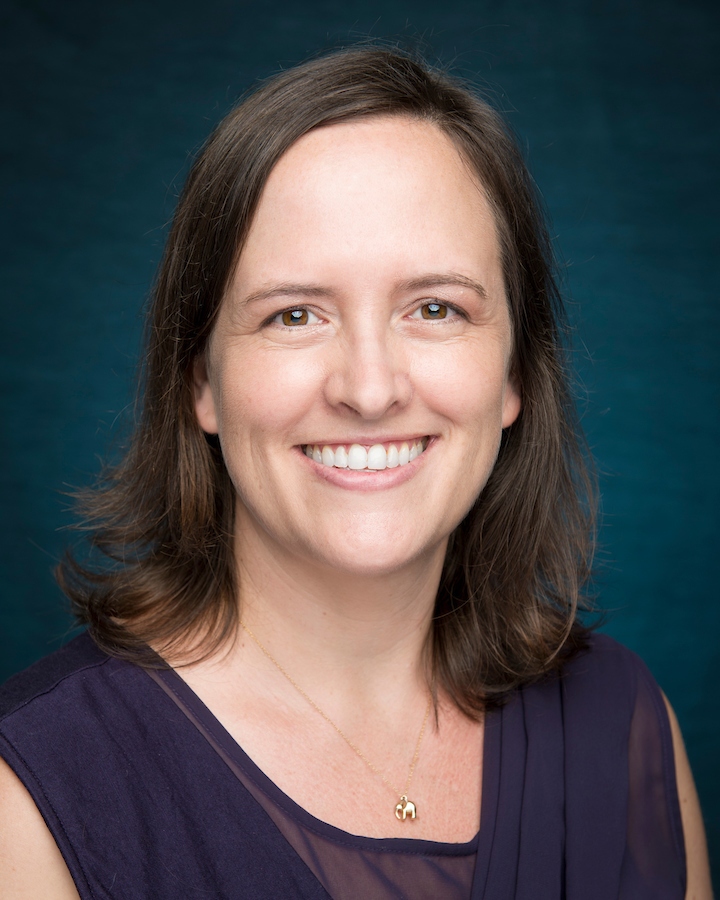Elizabeth Crawford Partners with OWL

During the 2022-23 academic year, WCE Professor Elizabeth Crawford partnered with Open Way Learning (OWL) to introduce students enrolled in the Master of Arts in Elementary Education program to design thinking. Open Way Learning is a NC-based non-profit that helps schools develop, sustain, and scale systems of learner-centered innovation.
“I reached out to OWL to learn how I might use design thinking as a process for pedagogical decision-making and to make innovation a cultural priority within our MAT in Elementary Education program,” Dr. Crawford said. “Our goal was to create a human-centered instructional design course that positively impacts preservice and beginning teachers’ beliefs, practices, and sense of agency.”
With the support of Ben Pendarvis, OWL’s Outreach Director and Lead Instructional Coach, Crawford revisioned LIC 501, an instructional design course, and its co-requisite lab course, to guide student research on their teaching and learning context. Together, they held webinars to introduce students to design thinking; created new field experience workbooks to guide student research; shared tools like empathy mapping, empathy interviews, passion maps, and slow looking; and provided examples of ways to prototype and enhance lessons informed by knowledge of their students and any barriers they notice to student learning.
At the end of the course, students implemented their designed solution – a lesson plan created following an empathy-driven design thinking process – and reflected on their practice.
MAT student Brooks Rockwell said learning to focus on his core values as an educator and his students’ values was helpful in his role as a kindergarten teacher at Belville Elementary School.
“I am determined to create a nurturing environment that provides all students the opportunities and representation they deserve,” Rockwell said. “This may sound lofty, but it can be as simple as remembering to choose diverse imagery and messaging regarding who can be a doctor when we are learning about the importance of regular health check-ups.”
Rockwell and MAT student Molly Finn were featured in an article Crawford and Pendarvis wrote about their work. The article, which provides tips to guide other educators in the use of design thinking, was published on the Institute for Humane Education’s website in August: Five Ways to Use Design Thinking as a Solutionary Educator.
Crawford, who often partners with educational organizations like the Institute for Humane Education and Open Way Learning to enhance her teaching, said she will continue to use OWL resources including empathy mapping to design learning experiences because it helps preservice teachers learn to actively listen and use knowledge of students’ assets, interests, and needs to inform the design of the learning space and curriculum.
“Partnering with education organizations like OWL in my courses helps to expose students to quality teaching resources and a network of passionate people working to improve education for all students,” Crawford said. “I have long been involved at the Institute for Humane Education, first as a member of their Board of Directors a decade ago followed by as a guest blogger and current member of their Advisory Council. I have also collaborated with other organizations using human-centered design (HCD) like Design for Change and Designathon Works. This year’s new partnership will be with Belouga for whom my students will design experiences for their platform.”
About the MAT in Elementary Education Program
WCE’s 16-month program is designed for individuals with a bachelor's degree, but little to no background in education, as well as beginning teachers who are seeking residency licensure. Students can select from main campus or online program options. Successful completion of the program and licensure requirements will lead to a master’s degree and NC license to teach children in grades K-6.
New cohorts begin Fall and Spring semester every year. Interested individuals can contact program coordinator Dr. Amy Senta at sentaa@uncw or visit the program website.
This article has the following tags: Academics Watson College of Education


